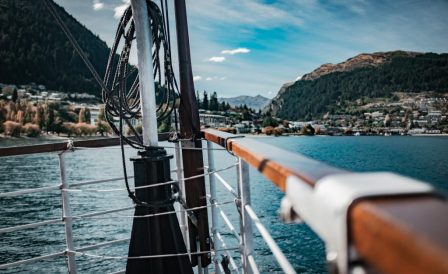A first-person story
Less than a year ago, a Ukrainian woman in her 30s found herself at a life dead end (yes, I’m talking about myself). And the best solution she could think of was to travel combined with taking English courses in New Zealand. Now I’m back here again, but this time with a backpack full of experiences, insights, advice, criticism, and compliments. But don’t get me wrong. I’m not trying to lure anyone over. We’ve got enough newcomers already.
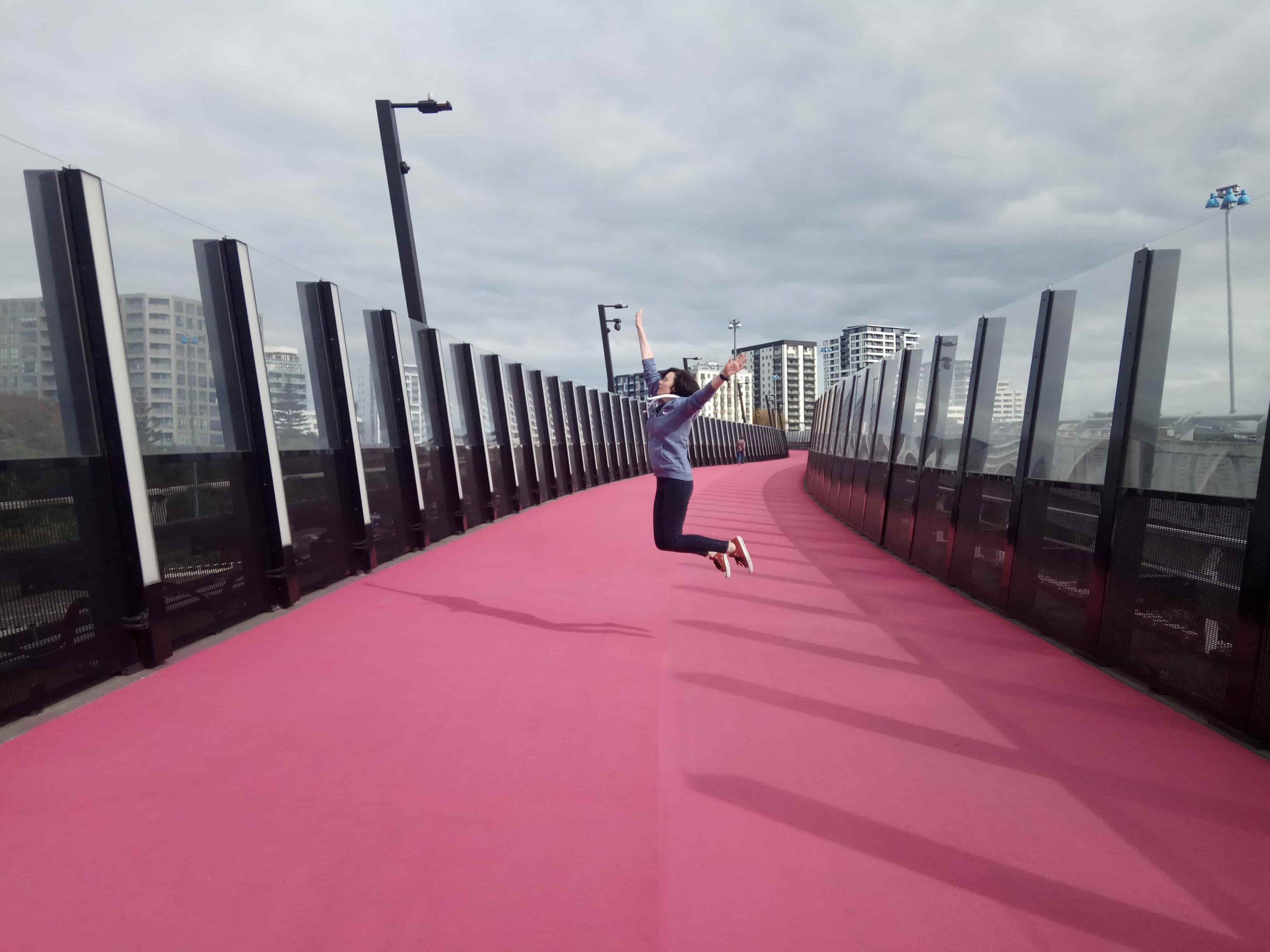
The Lightpath, Auckland
How much I spent
The main expenses were for the visa, round-trip tickets from Odesa to Auckland (the most expensive city to live in), five months of General English courses at EDENZ College, accommodation, countless travels around New Zealand, shopping, and leisure…
By my calculations, the trip cost me approximately $14,000 USD (I’ll stick to this currency for convenience). This amount can be broken down into the following main expenses:
- Visa, insurance, courier services = $250
- Flight = $1,500
- Outbound: Odesa–Istanbul–Bangkok (Turkish Airlines) – Auckland (Thai Airways)
- Return: Auckland–Singapore (Air New Zealand) – Istanbul–Odesa (Turkish Airlines)
The first route was the most optimal, about 27 hours in transit. On the way back, I had the chance to save $200 and spend 16 hours in Singapore — so I went for it.
- Tuition = $4,000
That includes various service fees for five months (20 weeks). At the time I applied, the weekly course fee was around $161 (in NZ, everything is usually calculated by week). - Accommodation for the Entire Period = $3,563
Homestay with a family
2 months = 1 550 $ (+/- 195 $/week)
In a homestay, you’re expected to have your own room. On weekdays, you’re provided with breakfast and dinner, and on weekends — three meals a day. You can use the washing machine and other household amenities, and ideally, the family should help you adapt culturally and make you feel comfortable in a foreign country. You might also have international housemates. In my case, there were two students from Brazil and Taiwan who were also studying English.
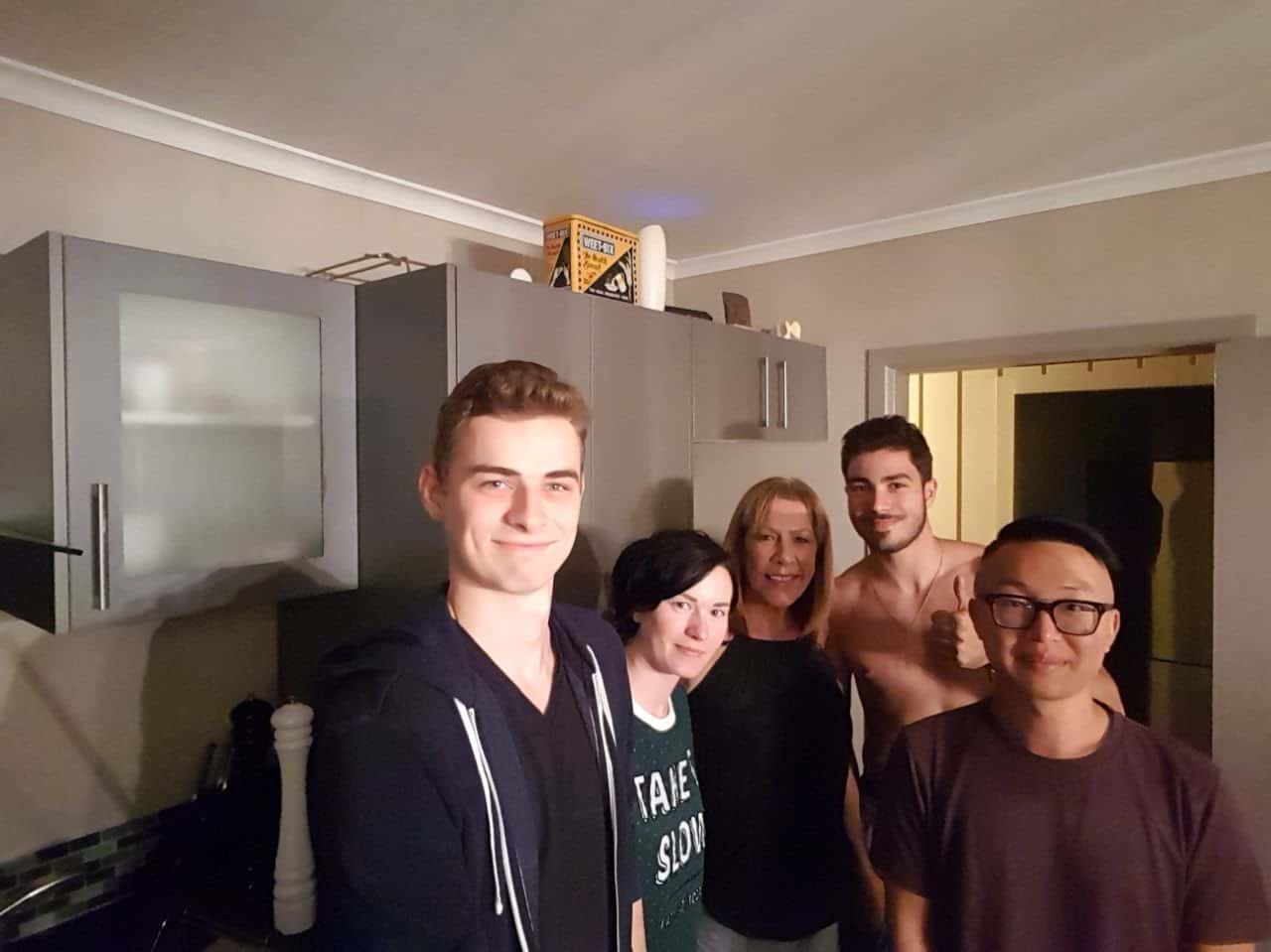
My New Zealand host mum Heather, Sean from Taiwan, Matheus from Brazil, and a former guest from Germany
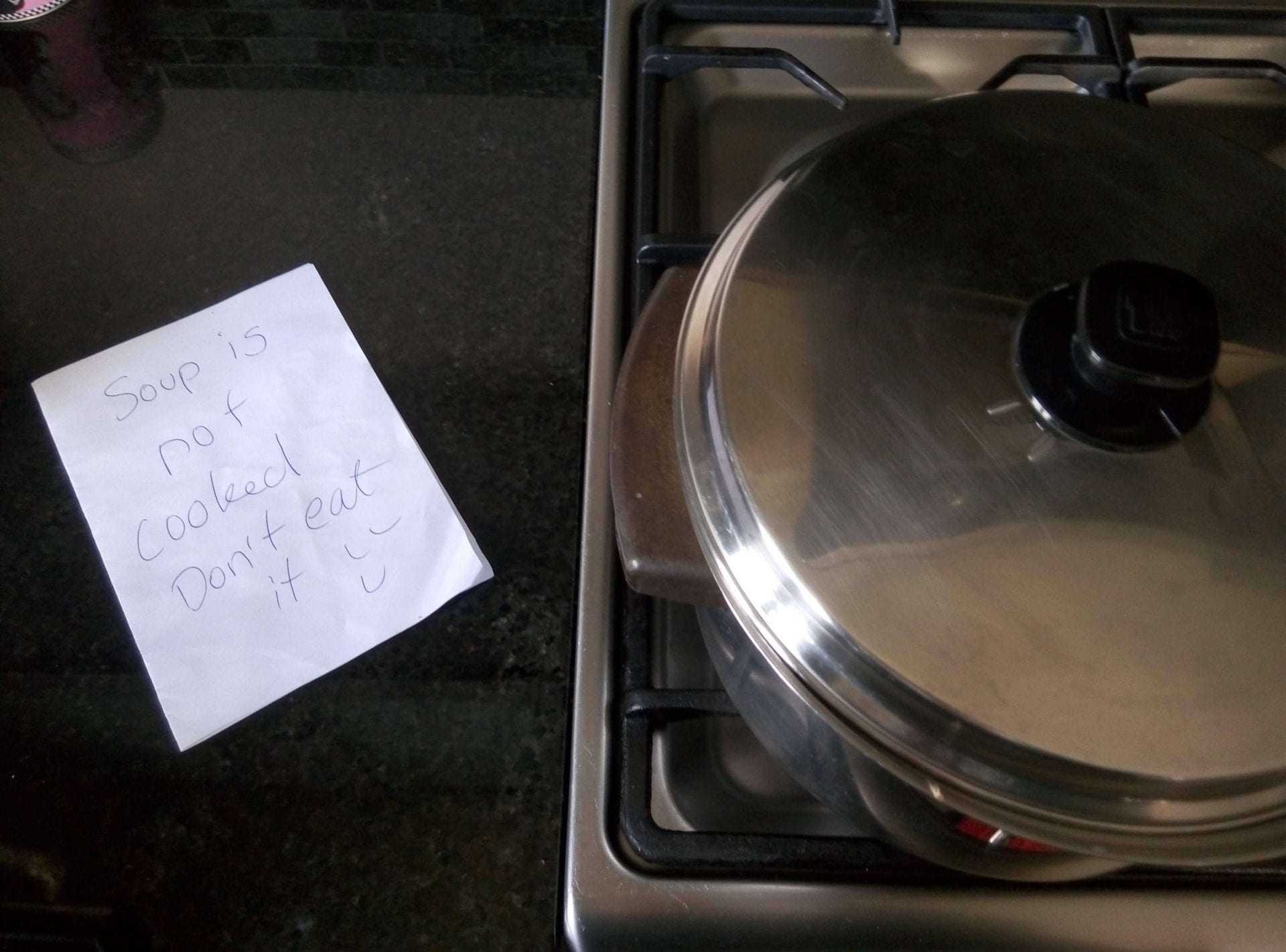
Private apartment
3 months = 2 013 $ (+/- 167 $/week)
I rented a room in a two-bedroom apartment right in the city center. That price included all utilities.
You can eat well for $70–80 per week. There’s lots of room for saving — from semi-prepared foods and cheap canned or packaged meals to pizza and fast food, which can cost as little as $10 per meal. So, spending about $1,600 over 5 months is totally realistic. You can check out prices on the websites of major supermarkets like Countdown и NewWorld.
Accommodation typically costs $70–80 per night (hotels, apartments). Campsites or holiday parks start from $30, and car rentals from $45.
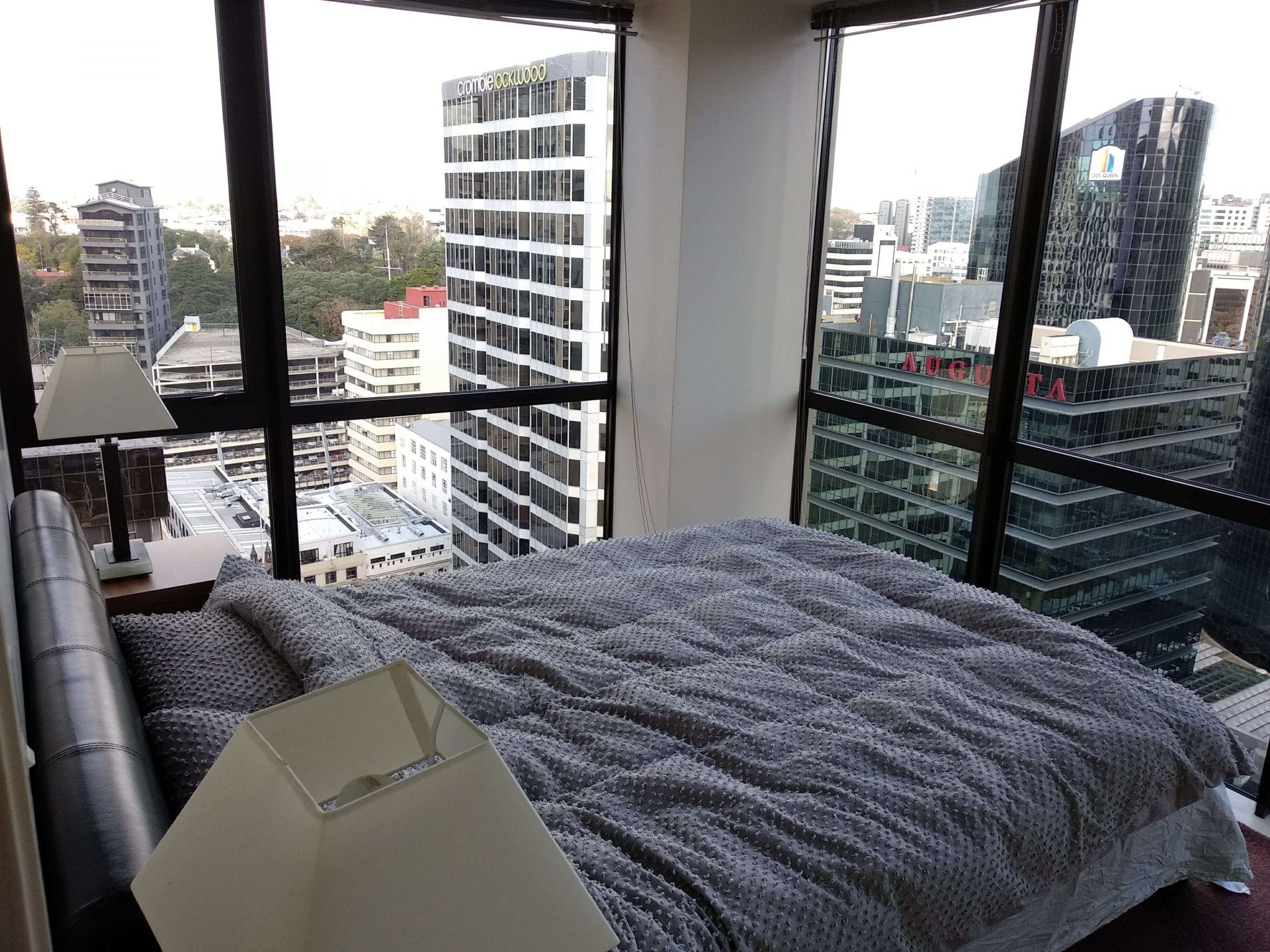
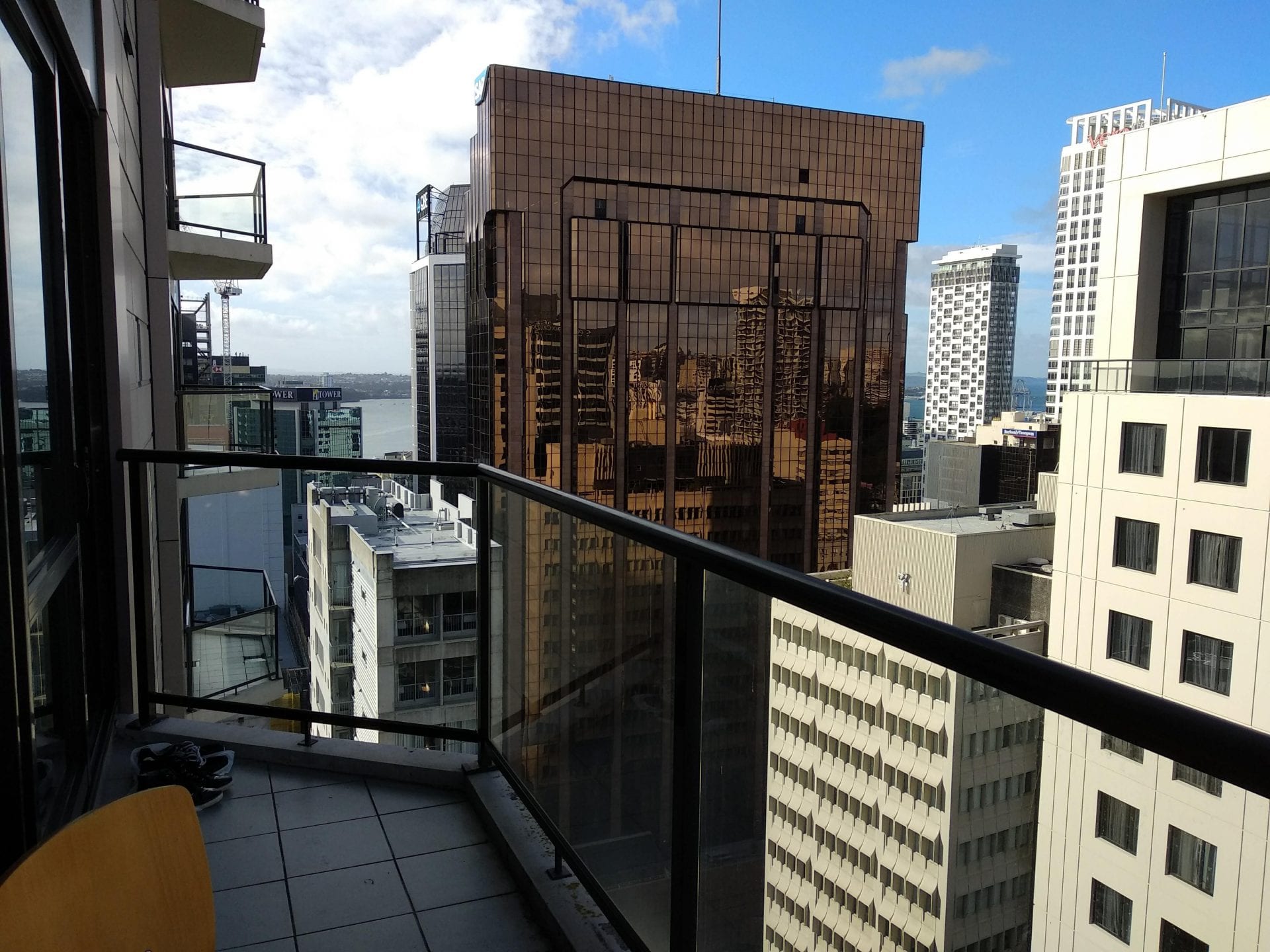
Trip goals and Language school
Originally, I set the following goals for this trip:
- To improve my English in a native-speaking environment
- To travel and relax
- To experience life in another country
- To get a part-time job
- To understand what it’s like to be a potential immigrant — to feel it for myself, and understand what it means to be “an outsider”
Language improvment
The worse the school, the more you’ll need to study on your own. So, when choosing a cheaper or lower-rated school, keep in mind that your teachers will likely either be from anywhere but English-speaking countries — or local retirees who aren’t exactly enthusiastic about what’s going on around them. Your classmates will most likely be from the CIS, South Africa, and lower-income parts of Asia — and all of them are there with one goal: to live, work, or somehow settle down in New Zealand.
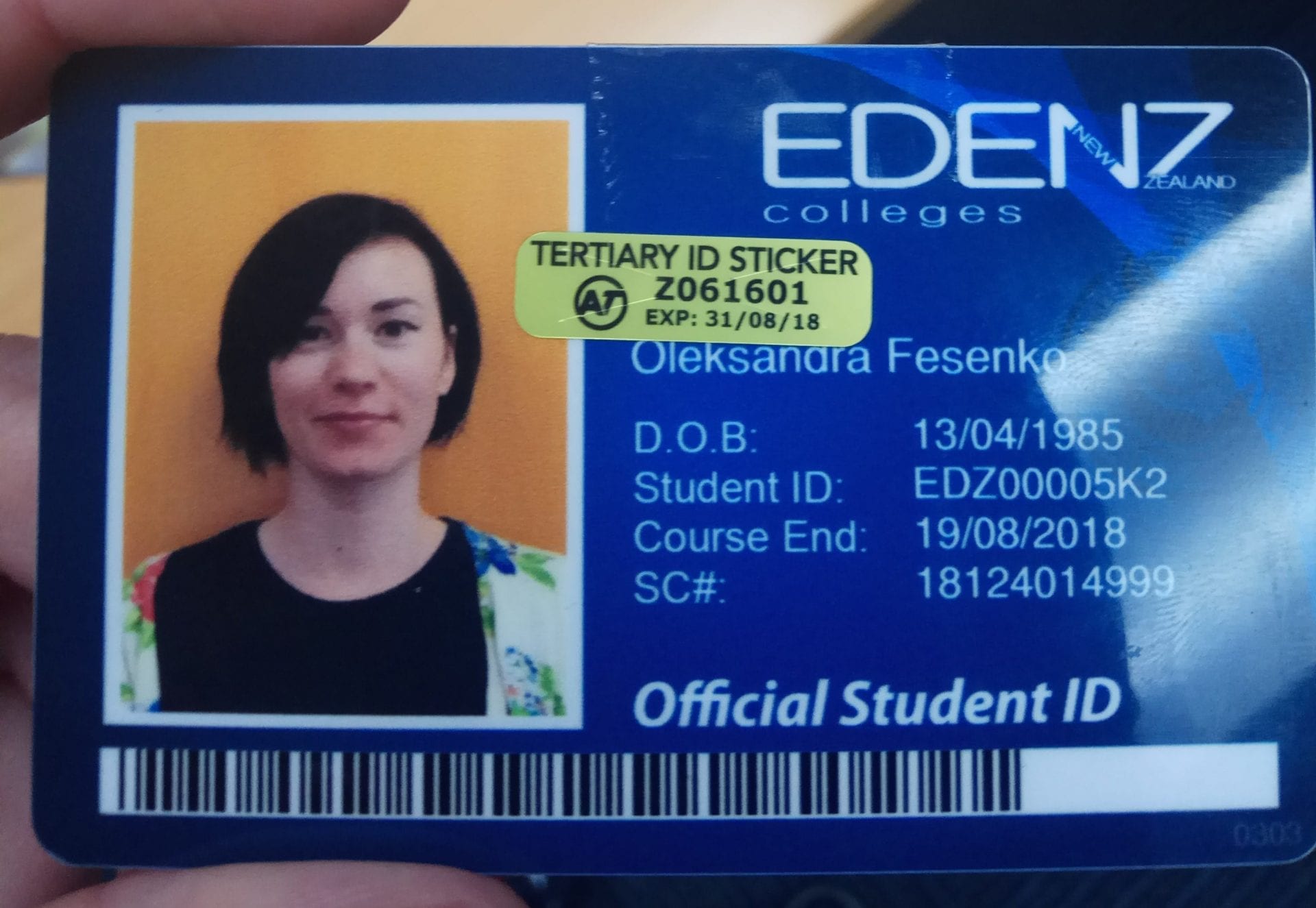
That was exactly my case. My teachers included an Asian woman, a Brazilian, a Russian, and a Mexican. The last two were actually quite good: the Russian teacher was strong academically — she drilled grammar well and loved incorporating games into the lessons, which helped create a friendly and fun atmosphere in class. The Mexican teacher focused a lot on local expressions and native ways of speaking, and in just three weeks in his class, he managed to fix a bunch of embarrassing mistakes in my speech. But, but, but… I really wish I had heard more of a British accent. Writing was a total mess — there was very little attention paid to it and barely any practice.
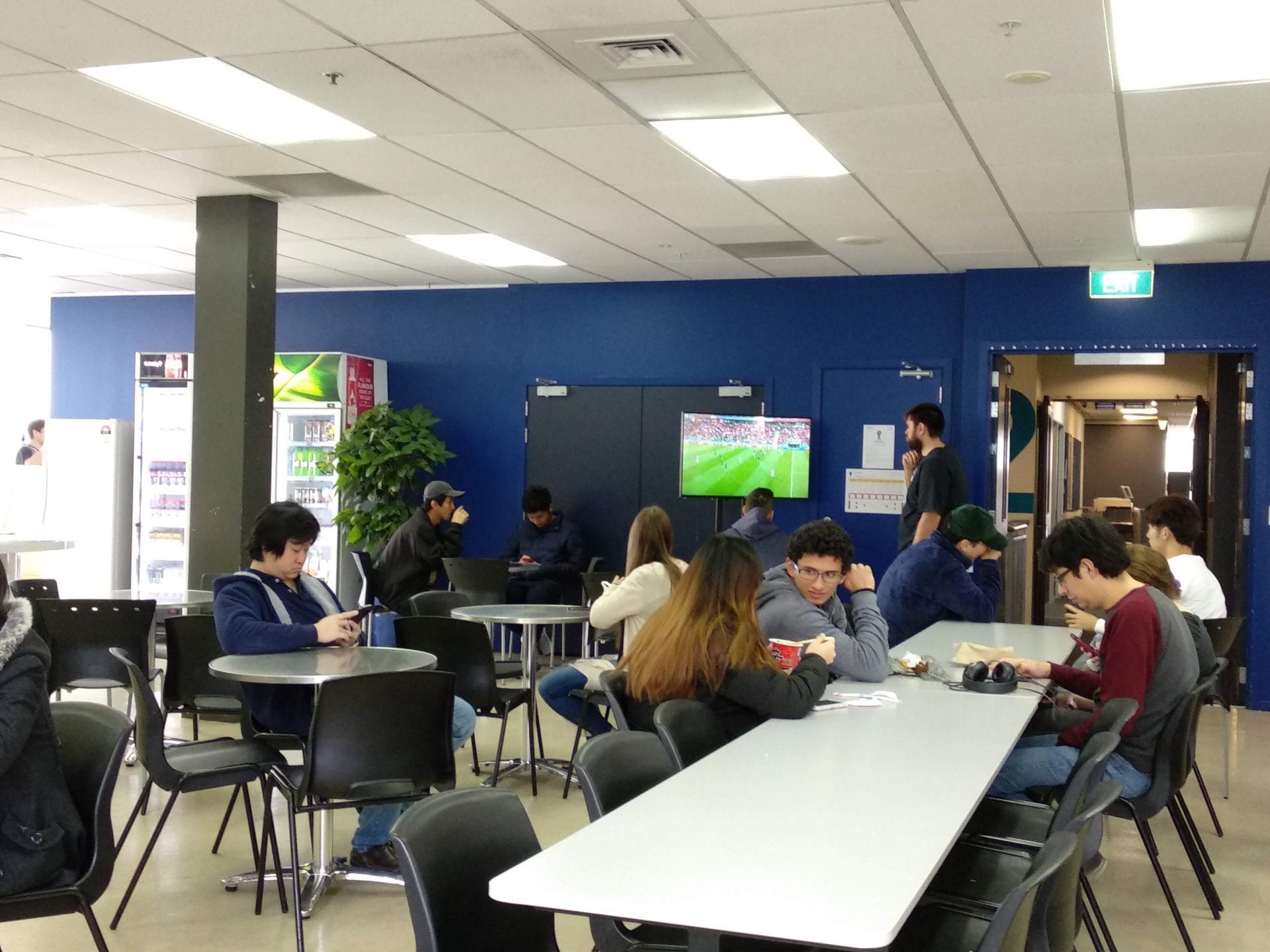
School cafeteria during a World Cup match
When I was running around on my own and doing everything myself (especially during the first month and a half), my English improved quickly. Simply because I was using it all the time. No one else could explain for me at the bank what I needed, for example.
The more I spoke Russian, the slower I was to switch into English. And as I now realize, the slower I reacted to English. I didn’t immediately recognize it. Like, I’d walk into a store, someone would say something to me, and I needed a few seconds to realize what they said, or I’d have to ask again. When I started speaking less Russian, it became easier for me to “catch” English speech. I could identify it instantly without effort.
As soon as I started volunteering, I started picking up new words much more effectively. I’d learn a few in the morning at school, and then in the afternoon, I’d hear about 50% of them being used by someone at the office, or use them myself. That kind of real-life application instantly transferred new words to my mental dictionary. Of course, it may sound like a cliché, but when you’re fully immersed in an English-speaking environment, your grasp of the language develops very quickly. So, minimize your contact with fellow Russian speakers, really.
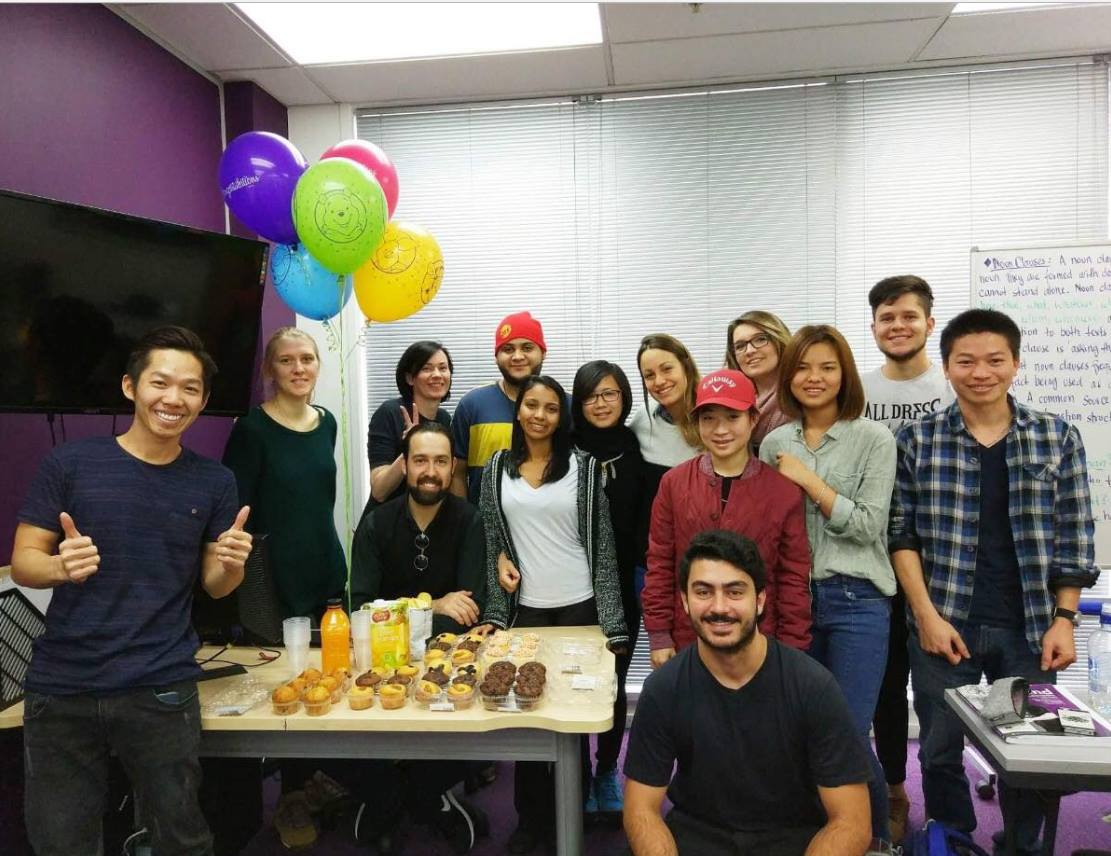
Study results & progress
My academic battle began with what I would personally call a very weak Upper-Intermediate level. That’s probably the toughest spot to be in. It’s better to start from scratch than to try and patch holes. The placement test put me in Intermediate, but they moved me up to Upper-Intermediate in the second week, where I stayed for the full five months. Some students moved to higher levels, but I never made it. Honestly, it was fair. So, in the end, I went from a weak Upper-Intermediate to a strong one. Though I must note that I spent about three months traveling and living with Russian speakers, which definitely slowed down my progress.
Volunteering
Even though student visas allow you to work 20 hours a week, finding a job wasn’t my top priority. With my English level at the time, the best I could hope for was waitressing. Not exactly a dream job. I made a few attempts to get an office job but was rejected everywhere. Then came a bit of a personal life twist, and that was the end of that. So volunteering was my only real shot.
And I got incredibly lucky: I landed a position at the New Zealand branch of Oxfam, a large international charitable organization. They had a new internal management system and needed someone to organize their data — tedious computer tasks, which I love. I could set my own schedule. The office was right next to my school. Everyone there was a native English speaker, and the work atmosphere was very unique.
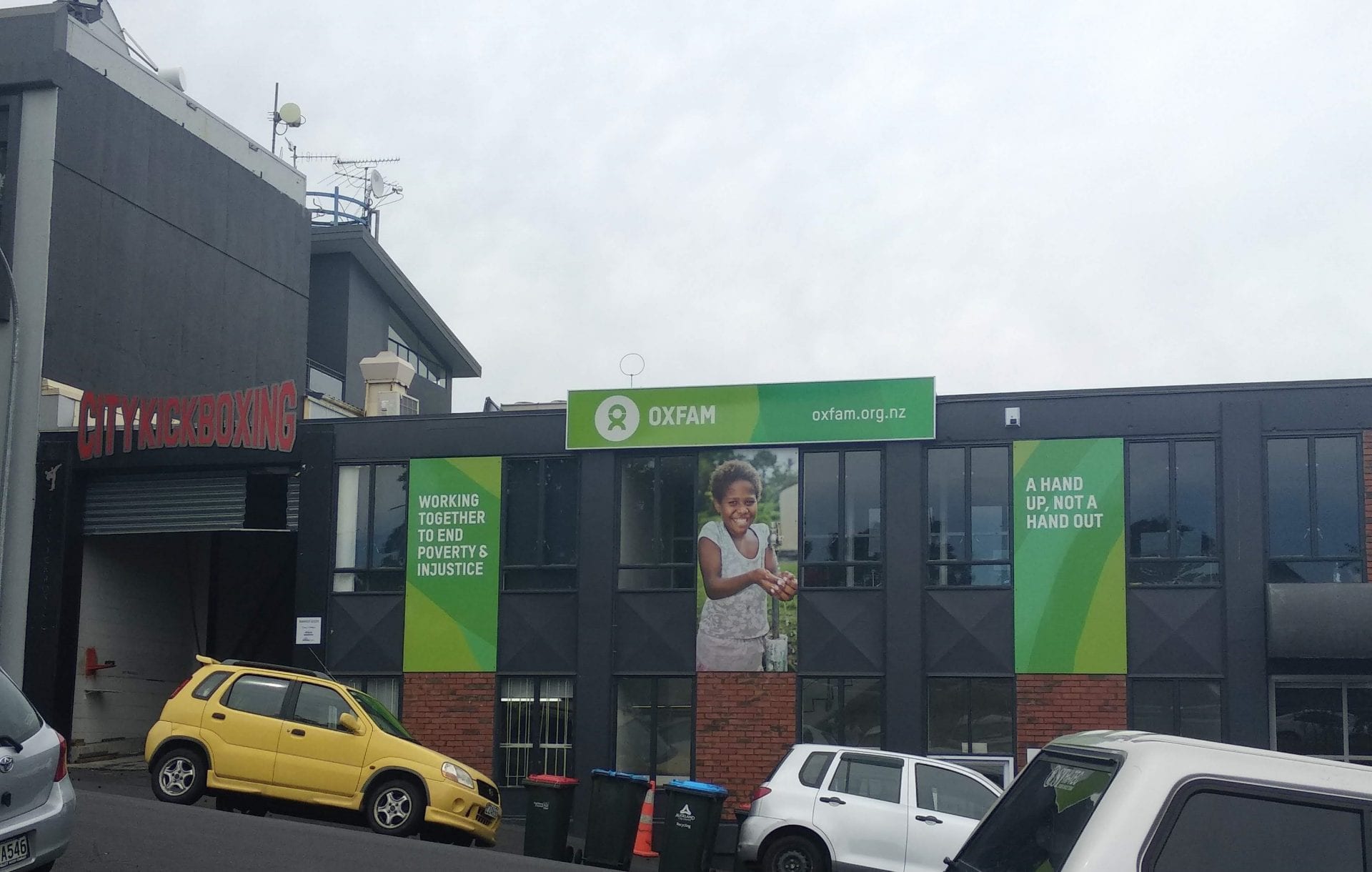
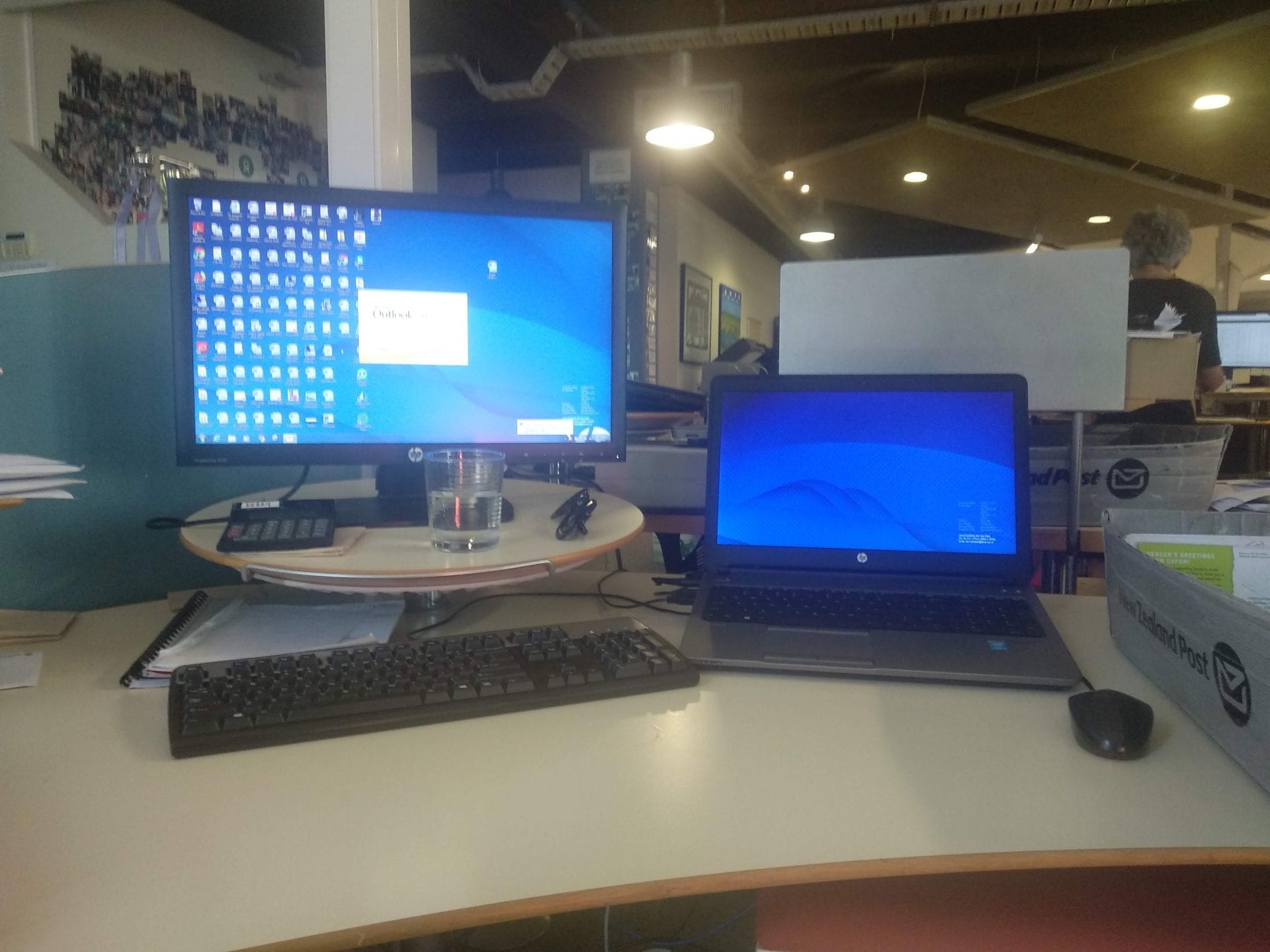
A volunteer’s desk
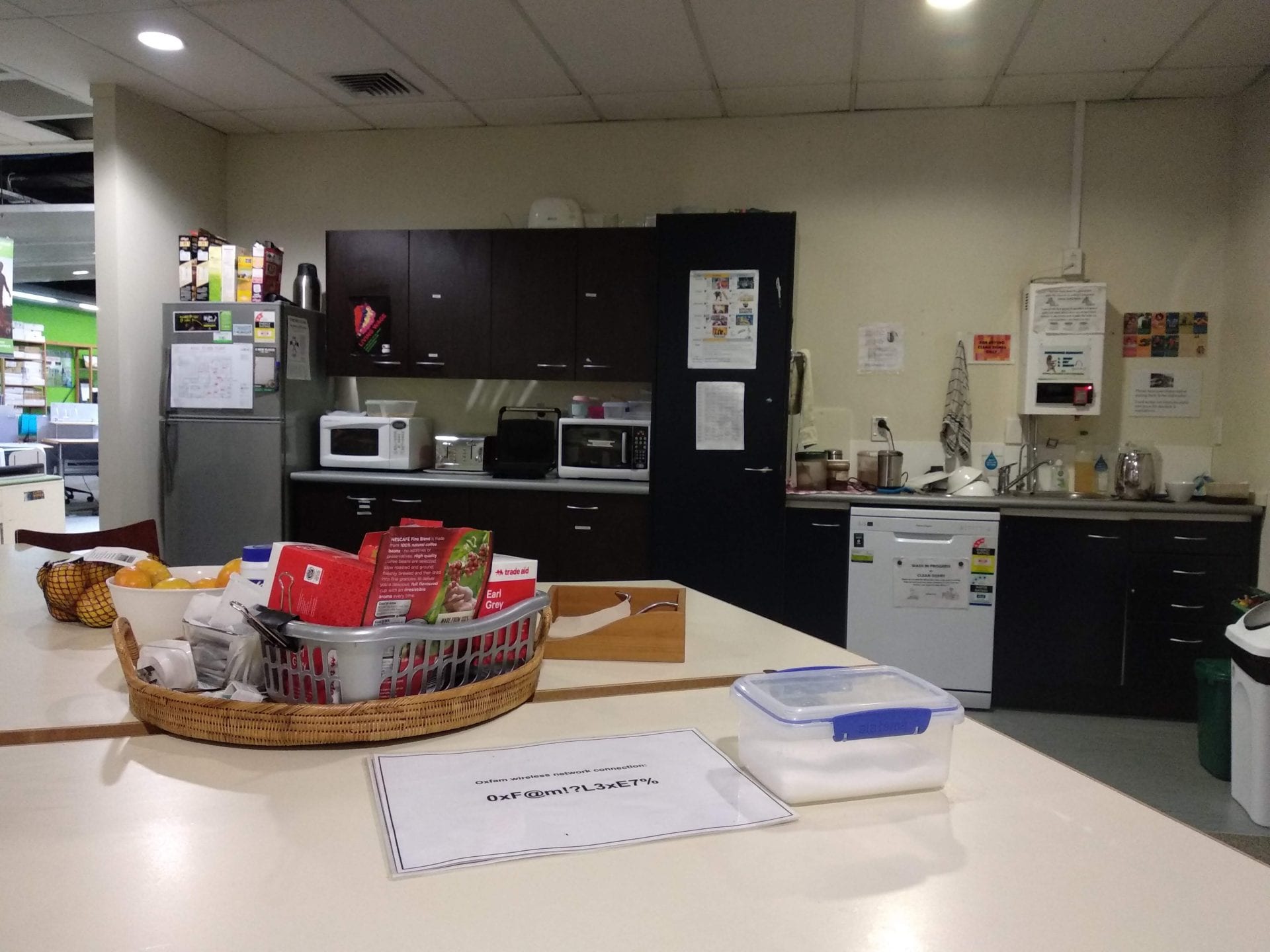
Kitchen with snacks for staff
Kiwi lifestyle
This is where I finally got to experience their famous work-life balance. Life here happens outside of work. Unlike our post-Soviet culture, where work dominates everything. Back home, people talk about work at work, then come home and keep talking about it. When they meet up with friends, again, work is the main topic. But here? Totally different.
They work slowly and casually, often discussing even the smallest matters over and over again — sometimes with entire team input. That still makes me smile. Later I found out that many of my colleagues were actually British, waiting for their New Zealand residency. When I asked them why they were leaving the UK, their answer was always the same: work-life balance. Life comes first. And there really is a lot to do outside of work here.
Even their approach to work itself is funny. For someone from the “old school” post-Soviet mindset, it could be tough. When I started working at my usual fast pace, it made some people slightly uncomfortable. I got a few subtle hints that “at this rate, there won’t be any work left soon.”
Leisure and travel
What to do in Auckland – and how much it costs
Entertainment like bars, clubs, movies, theatre, restaurants, or festivals can seriously hit your wallet. Personally, I chose to prioritize travel. For example, going to see Aquaman in IMAX with one medium popcorn and two small drinks cost us $47 for two people. That’s about the same as an escape room for two. On average, a glass of beer or wine costs $6–7, and cocktails go for $10–15. Of course, you can always take advantage of deals and happy hours to save a bit.
That said, keep in mind this is Auckland — New Zealand’s most expensive city, and also where I lived. Prices here are generally higher across the board. Sometimes significantly.
Entry to exhibitions or theme parks will run you about $25–40. Cruises and farm/winery tours average $80. Bungy jumps? Around $100. But the best thing here is the nature, and that’s completely free!
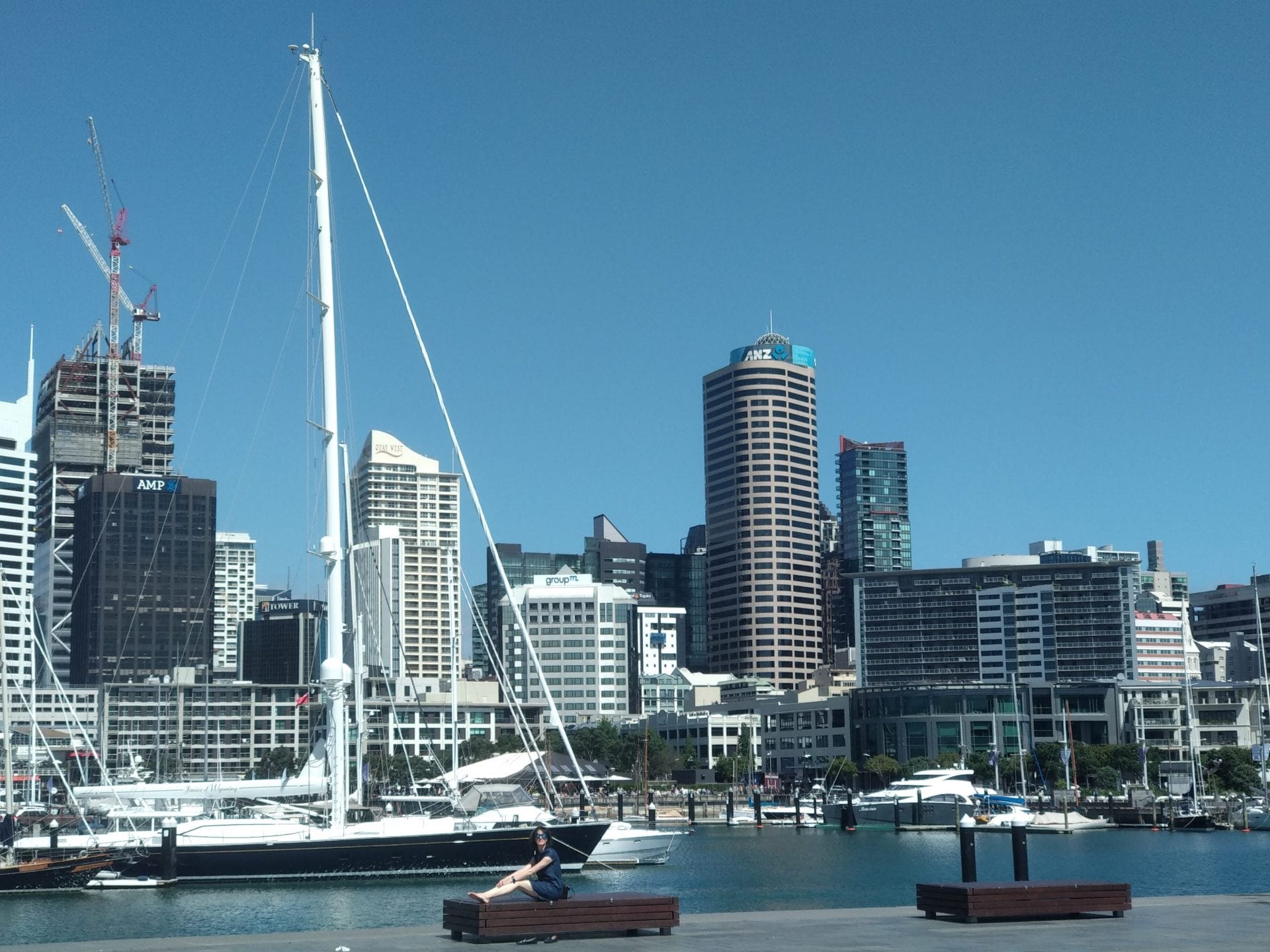
Viaduct, Auckland
Getting out of the city
You can travel around New Zealand on a budget. There’re couchsurfing, hostels, and plenty of campgrounds. Car relocation is a great way to travel between the North and South islands while spending next to nothing on transportation. If you coordinate with fellow students, it gets even cheaper. The country is extremely travel-friendly, offering everything from luxury to budget. Though, to be honest, there’s definitely more of the expensive kind.
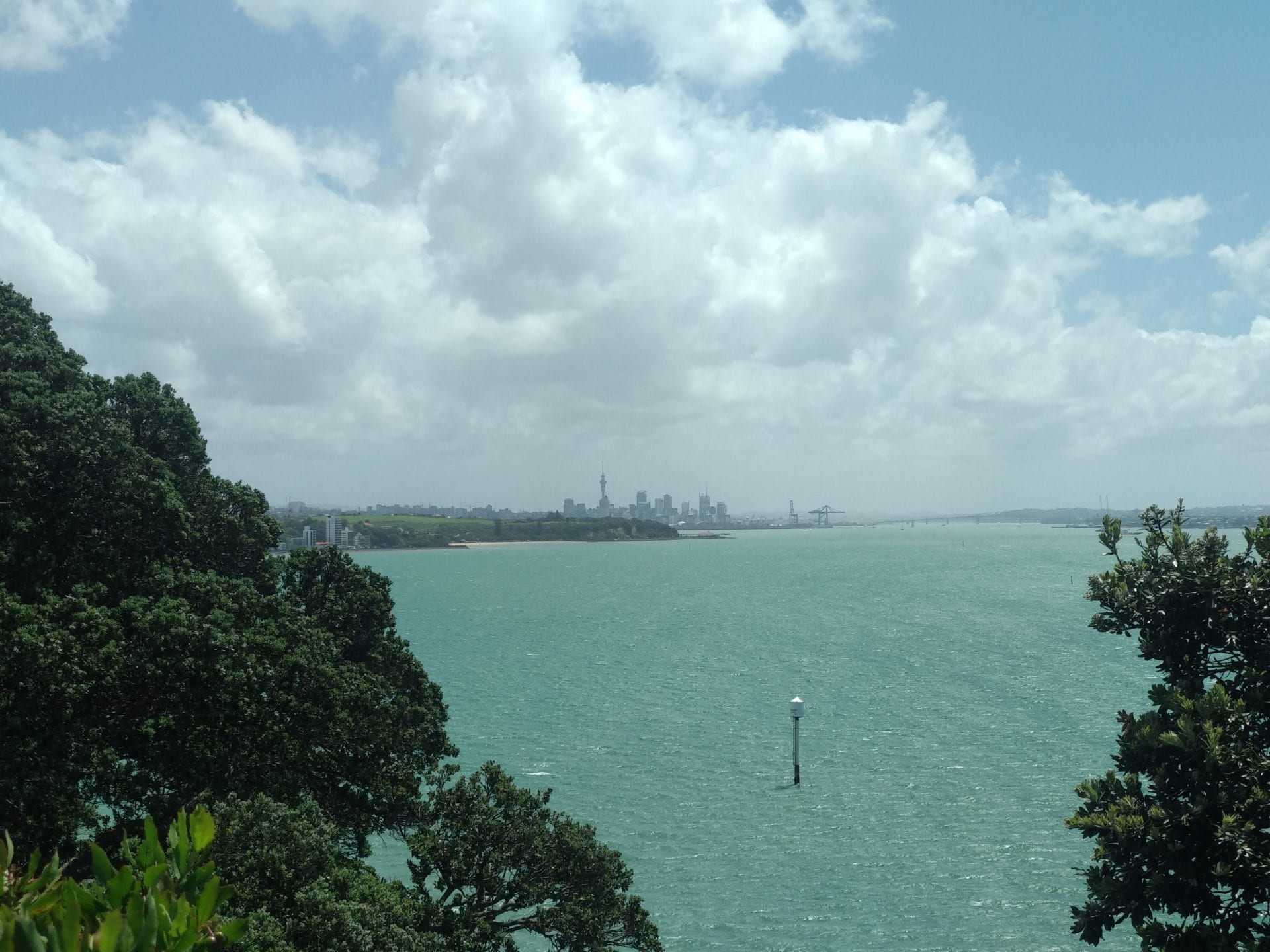
Achilles Point, Saint Heliers.
Wherever you go — it’s beautiful. Even though I was here during autumn/winter, I still managed to travel across both islands… albeit in a whirlwind. I honestly can’t imagine how much time it would take to explore it all. It’s a small country, but it’s got geysers, glaciers, whales and seals, fjords, islands, dunes, turquoise bays, volcanoes, emerald hills, national parks, and black- and white-sand beaches. Plus, there are no snakes or other creepy crawlies! The beauty of it all is that everything is so close together.

Mt John Observatory, South island

Gibbs Farm, North island
The other side of the coin
Five months is actually plenty of time to figure yourself out as a “foreigner in a new land.” By the third month, you’ve usually gathered enough information (depending on the person and the rose-colored glasses they wear) to start seeing the “flip side of the coin”. And to ask yourself whether this coat fits.
Yes, people run red lights here. Yes, homes can get broken into. The housing quality can be terrible while prices remain ridiculously high. You may meet drug-addicts. The customer service can be disappointing. The cost of living is through the roof. The list goes on.
Then there’s the constant influx of migrants, which has driven up housing prices while simultaneously driving down job market standards, filling it with cheaper, less skilled labor.
Auckland doesn’t even feel like New Zealand. It’s multicultural to the extreme. If you want to see the “real” NZ, you need to go somewhere less touristy and financially attractive. But for me, that’s exactly what makes Auckland amazing. The people are so different! Everyone has their own style, their own look. It’s a feast for the eyes. And it’s also a paradise for the stomach! I discovered Indian and Vietnamese food here. The options are endless, though I personally didn’t love the local “classics” like Kiwi meat pies or fish and chips.

Dull Kiwi pie and the beloved local drink, kombucha
Epilogue
At the end of my allotted time here, I didn’t fall head over heels for New Zealand. I’m not dreaming about emigrating. I think it’s less about the country itself and more about my personal desire to keep exploring. The world is huge, and I’ve only just begun.
I won’t go as far as Avi in Snatch, who said, “Don’t go to England,” and I wouldn’t say “Don’t go to New Zealand” either. I didn’t mind coming back here. And in fact, I did. But that’s already another story.
To wrap things up, I believe a successful emigration depends on many things. If your main drive is purely financial — to earn much more or to skyrocket your career — the NZ job market may not live up to those ambitions. It’s small and competitive.
But if your goal is peace of mind, not having to worry about every new government decision, raising your kids in a more collaborative than competitive environment, and living closer to nature — then you might want to give New Zealand a very serious look.



